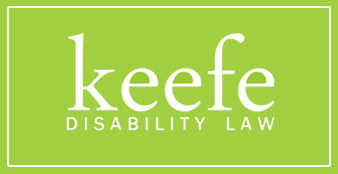According to the National Federation for the Blind, as many as ten million Americans are blind or visually impaired. What does that mean?
Visually impaired or low vision is used to describe a significant loss of visual acuity, even with corrections such as glasses or contact lenses. A person with low vision has a visual acuity no better than 20/70 with glasses. They may also have difficulty with color vision, limited peripheral vision, blurriness or haziness, or night blindness. Depending on the degree of visual impairment, a person with low vision may have difficulty reading regular-sized print, writing, shopping, watching TV, or recognizing faces.
About 1.3 million Americans are legally blind. People who are legally blind may still be able to see to some degree. To be “legally blind,” one must have less than 20/200 vision in the better eye (even with corrective lenses) or a field of vision that is limited to 20 degrees or less at its widest point. People who are legally blind may not drive.
Totally blind individuals have no vision at all.
Few people are born blind. Macular degeneration, glaucoma, and diabetes are the leading causes of blindness in the United States. Because of these diseases, about 75,000 people lose their sight each year.
- Macular degeneration affects 13 million Americans.
- 2.2 million Americans have glaucoma; 120,000 are blind.
- 26 million Americans have diabetes; almost 80 million have pre-diabetes; 4.5 million have diabetic retinopathy; about 700,000 have severe retinopathy that could lead to blindness.
Although the Social Security Administration does not have a category for “low vision,” an applicant who has vision impairments may still qualify for disability benefits if his or her vision problems alone or combined with other health problems prevent the applicant from working. To receive SSDI for low vision, you must have previously worked in a job where you paid Social Security taxes. The amount of time you must have worked depends on your age and disability.
To receive SSI for vision impairment, you must meet certain income limits.
Get Help With Vision Disorder Disability Benefits
Not sure if you qualify? Request a free copy of John Keefe's free book, Unlocking the Mystery - The Essential Guide for Navigating the Social Security Disability Claims Process. If you need help with the Social Security application process, our New England SSDI lawyers can help. To schedule a free consultation with our disability benefit attorneys in Boston, call Keefe Disability Law at 888-904-6847.
Are You Looking for a Social Security Disability Attorney in Boston, MA?
If you are looking to apply for social security disability, you need to speak with an experienced social security disability lawyer as soon as possible. Please contact us online or call our Natick Office directly at 508.283.5500 to schedule your free consultation.


